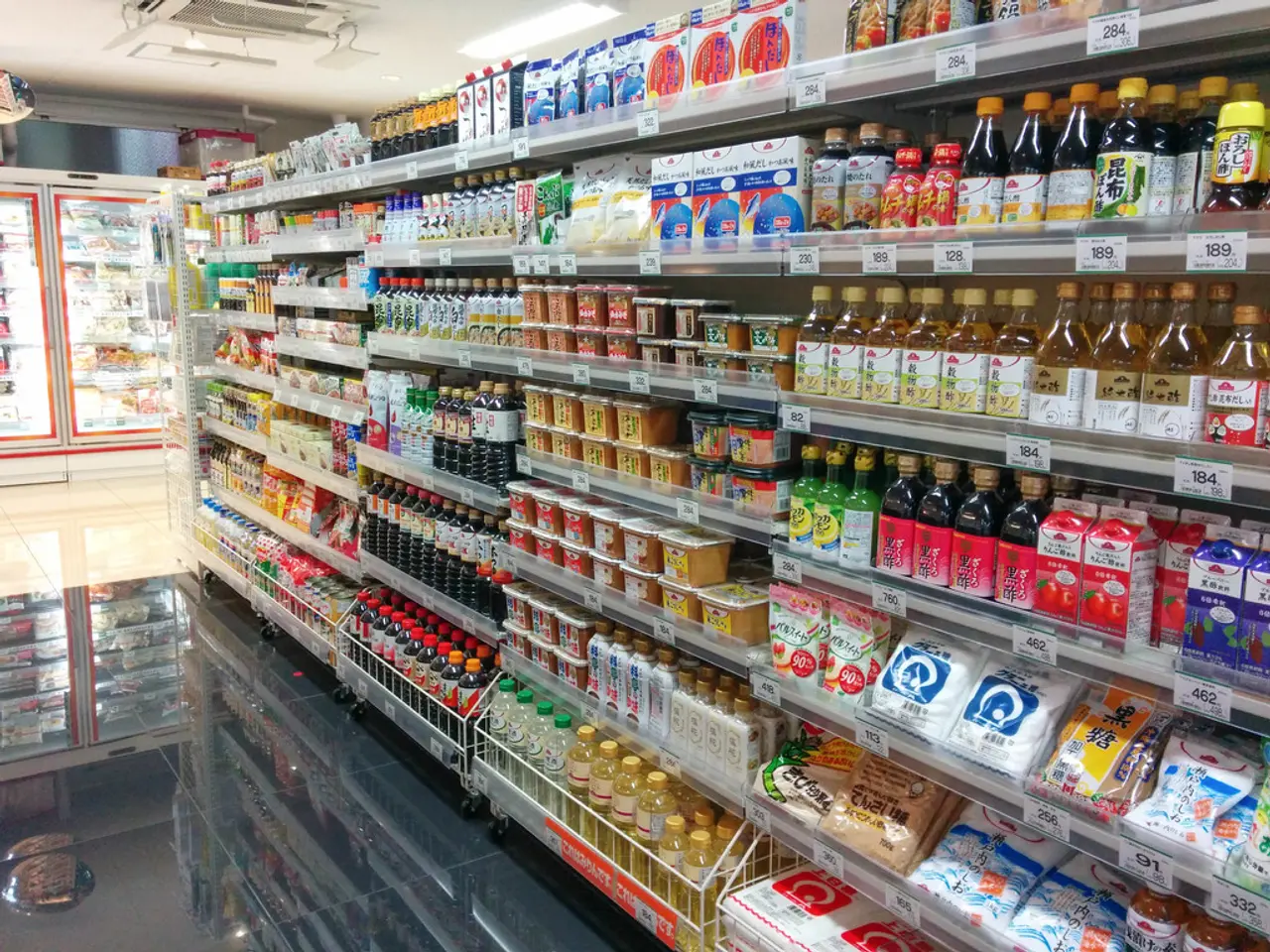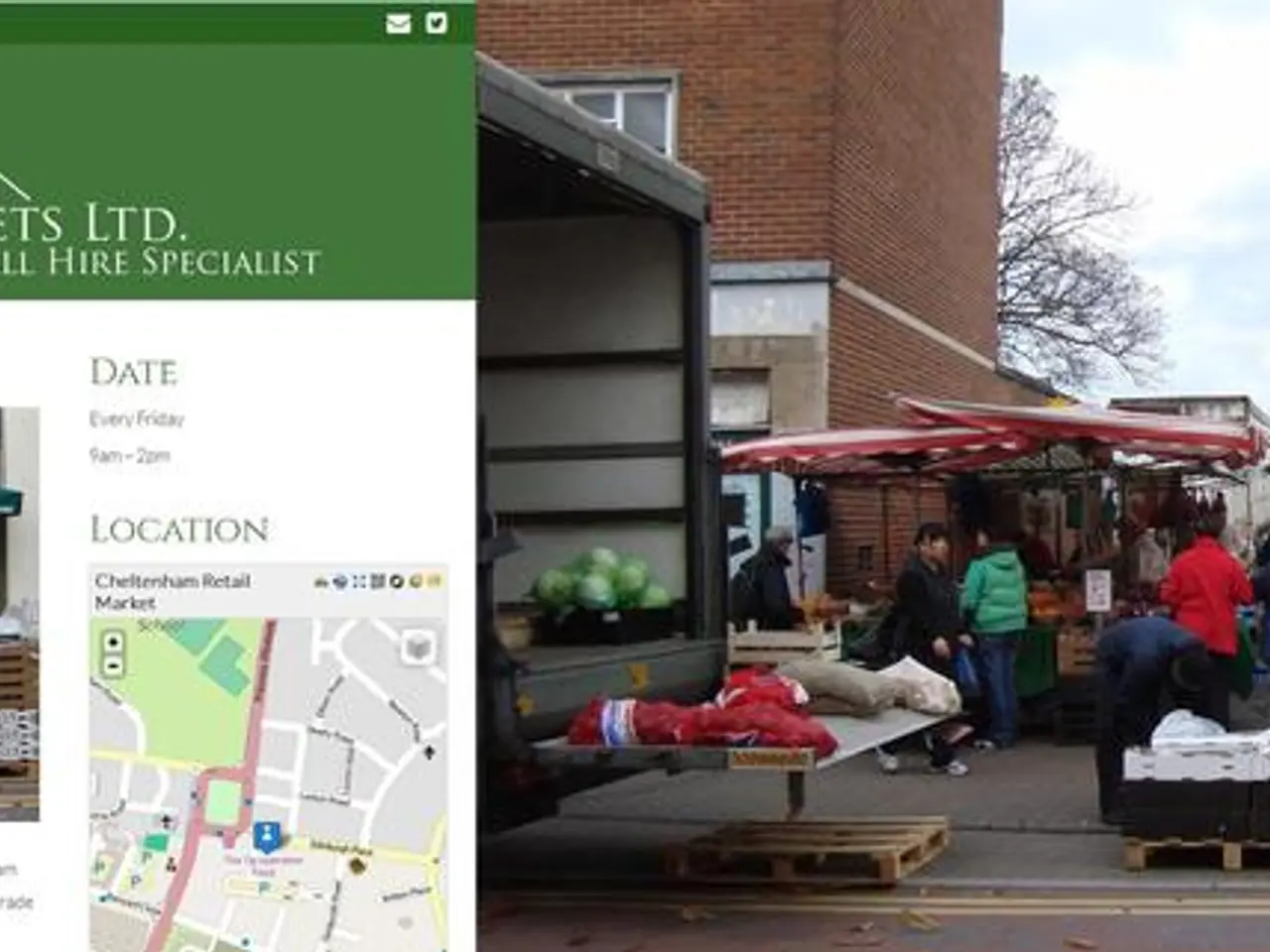City food supply potentially facing detrimental impacts due to Mamdani's public grocery establishments.
In the bustling heart of New York City, the mayoral race is heating up, with Zohran Mamdani, the winner of the Democratic primary, proposing a unique solution to rising food prices and food deserts - city-owned grocery stores. However, economists and business leaders are raising red flags, citing concerns about market discipline, inefficiency, and potential negative effects on the city's food supply.
Mamdani's plan aims to lower overhead costs by exempting the public grocery stores from paying rent or property taxes. This move, while intended to reduce costs, has sparked debate. Critics argue that such exemptions could lead to bloated operational costs and poor inventory management, risking empty shelves and food shortages.
One of the most vocal opponents is Bill Ackman, CEO of Pershing Square Capital Management, who has expressed his disapproval of Mamdani's mayoral candidacy. Ackman warns that Mamdani's financial plan could "destroy jobs and cause businesses and wealthy taxpayers" to leave New York.
E.J. Antoni, chief economist at the Heritage Foundation, echoes Ackman's concerns, stating that there's no way to sell products at lower prices and still make money with Mamdani's city-run grocery stores. Dan Loeb, founder of Third Point, has referred to the election of Zohran Mamdani as "officially hot commie summer."
The primary economic arguments against Mamdani's proposal centre around the lack of market discipline, inefficiency, and potential negative effects on the city's food supply. Experts argue that government-run grocery stores do not face the same pressures as private businesses to be efficient or responsive. Unlike private grocers that compete on price, quality, and service to survive on thin profit margins, public stores get funded regardless of performance, which can lead to inefficiency and waste.
Economists warn that government entities tend to have bloated operational costs and poor inventory management, risking empty shelves and food shortages. This is exacerbated if the stores sell at prices below the private market, potentially driving customers away from private grocers and thus destabilizing the overall food supply.
Critics point to historical and recent examples such as Soviet Union state-controlled food systems and Venezuela’s government grocery experiments, which resulted in catastrophic mismanagement and chronic shortages, highlighting the risks of government-operated food retail.
Analysts call Mamdani’s plan economically naïve or hubristic, noting that grocery retail is a notoriously low-margin business, and public entities realistically cannot generate extra profits to cover lower prices. The simple math suggests selling substantially below private market prices while sustaining operations is unfeasible.
Rather than running grocery stores, some experts recommend expanding food assistance programs like food stamps (SNAP) to address food affordability concerns, rather than engaging in direct retail, which is a complex and competitive business requiring market discipline.
Despite the opposition, Mamdani plans to redirect some of the $140 million in private grocery store tax breaks to finance his pilot program for city-owned grocery stores. It remains to be seen how this proposal will unfold in the coming months as the mayoral race heats up.
- Mamdani's plan to reduce costs in city-owned grocery stores includes exempting them from paying rent or property taxes.
- Bill Ackman, CEO of Pershing Square Capital Management, has expressed his disapproval of Mamdani's mayoral candidacy, claiming it could cause businesses and wealthy taxpayers to leave New York.
- Economists like E.J. Antoni, chief economist at the Heritage Foundation, warn that Mamdani's financial plan could lead to inefficiency and waste, potentially causing food shortages.
- Dan Loeb, founder of Third Point, has referred to the election of Zohran Mamdani as "officially hot commie summer."
- Analysts argue that government-run grocery stores do not face the same pressures as private businesses to be efficient, leading to bloated operational costs and poor inventory management.
- Critics point to historical and recent examples such as the Soviet Union's state-controlled food systems and Venezuela’s government grocery experiments as warnings of the risks of government-operated food retail.
- Instead of running grocery stores, some experts recommend expanding food assistance programs like food stamps (SNAP) to address food affordability concerns, rather than engaging in direct retail.






